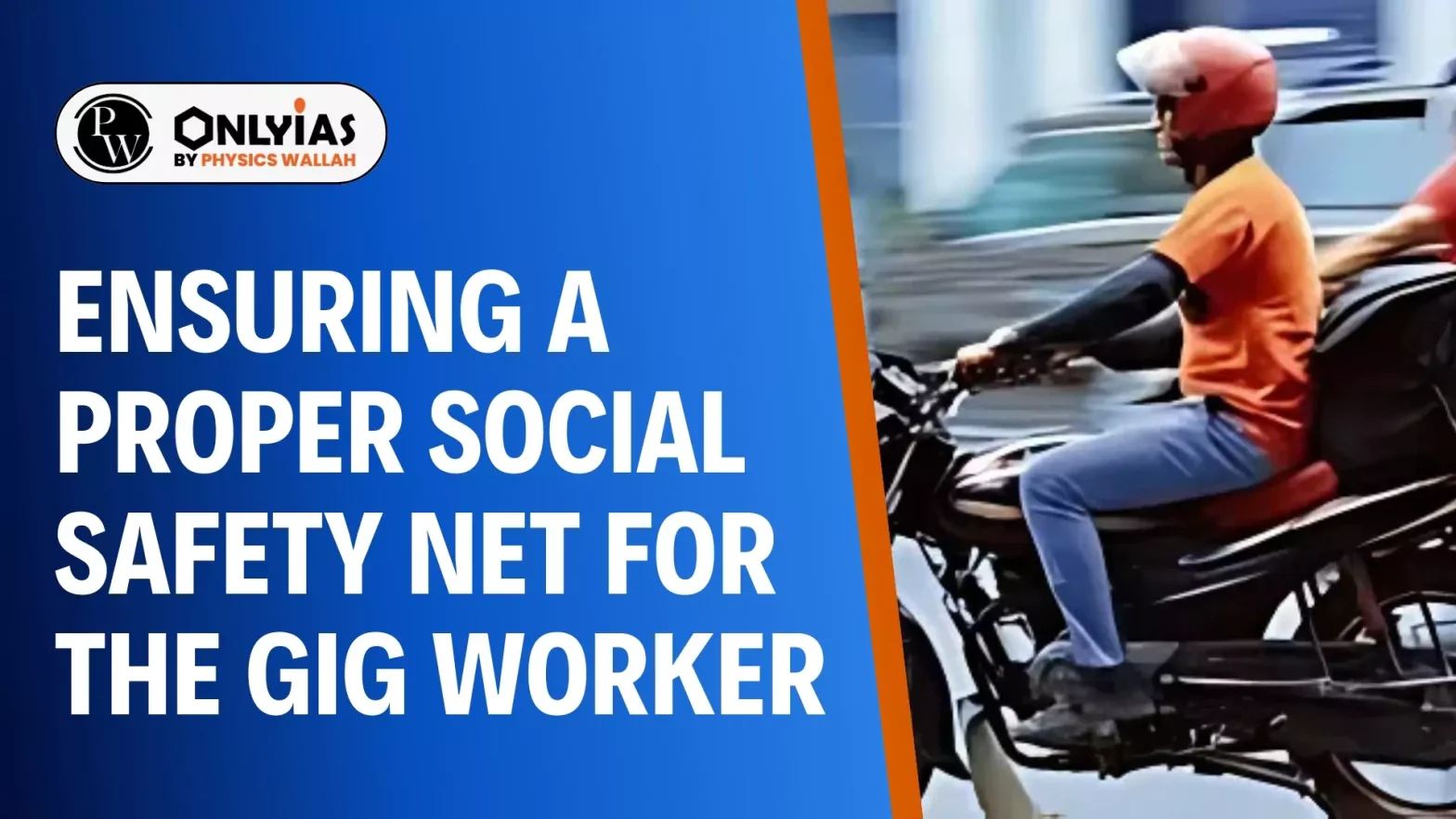The Union Ministry of Labour and Employment is drafting a national law to include gig workers in social security schemes, providing benefits like health insurance and retirement savings.
Proposed Legislation Provisions
- Revenue Contribution: Aggregators (For example Zomato, Swiggy) will be required to contribute 1%-2% of their revenue to a social security fund for gig workers, providing health insurance and other benefits.
- Welfare Board Model: The legislation will establish a welfare board to oversee the social security fund for gig workers.
- Worker Registration: All gig workers must be registered on the e-Shram platform by platform companies.
- Termination Notice: Aggregators must provide a 14-day notice with valid reasons before terminating a gig worker.
- Transparency: The law will ensure transparency in automated systems, detailing the criteria for work allocation.
- Dispute Resolution: Mechanisms will be introduced to protect gig workers’ rights.
- Inclusive Definitions: The government will revise the definitions of gig and migrant workers to better reflect current employment realities.
Enroll now for UPSC Online Classes
Current Provisions and Lacunae
The only existing legislative framework that addresses gig workers in India is the Social Security Code 2020. Some provisions and gaps include:
- Gig Workers Under Social Security Code: The Social Security Code 2020 mentions gig and platform workers, but places them outside the traditional employer-employee relationship, treating them as informal workers.
- The gig workers are allowed to register on the e-Shram portal for accessing basic social security schemes such as life and accidental insurance.
- Lack of Institutional Social Security:
- Formal sector employees: They are entitled to institutional social security benefits such as paid maternity leave and job security.
- Gig workers: They are only entitled to limited social security schemes, like cash benefits ranging from ₹5,000-₹10,000 for maternity, rather than the 26 weeks of paid leave offered to formal employees.
- Absence of Occupational Safety and Minimum Wage: These regulations do not apply to gig workers, leaving them exposed to significant vulnerabilities.
- No Industrial Relations Mechanism: The Industrial Relations Code 2020, which includes dispute resolution mechanisms for formal employees, does not cover gig workers.
- Ambiguous Employment Relations: Aggregator companies classify gig workers as independent contractors or freelancers, circumventing the traditional employer-employee framework.
- This “camouflaging” tactic leaves gig workers outside the purview of existing labour laws.
What Needs to Be Done?
- Clarification of Employment Relations: The Ministry should clearly define gig workers’ employment status, ensuring they are recognized as employees.
- This would require aggregators to abide by labour laws applicable to formal employees, including minimum wage, job security, and dispute resolution mechanisms.
- Inclusion Under Existing Labour Codes: Once the employment relationship is clarified, gig workers should be integrated into the four existing labour codes—Wages, Social Security, Industrial Relations, and Occupational Safety and Health—eliminating the need for a separate legislative framework.
- Learning from Global Precedents: India can take inspiration from international rulings, such as the U.K. Supreme Court’s 2021 decision on Uber, which classified Uber drivers as workers and required the company to comply with labour laws..
- Ensuring Effective Welfare Board Implementation: While the welfare board model is part of the proposed legislation, past experiences, such as with construction workers, have shown limited success.
- The government must ensure better governance and accountability in these welfare boards, including efficient fund allocation and access to benefits.
- Eliminating Separate Laws: The overarching goal of the labour codes was to simplify and rationalise India’s labour laws.
- Introducing separate legislation for specific workforce segments, such as gig workers, may complicate the legal landscape. It is more efficient to include gig workers within the existing codes to streamline protections.
Check Out UPSC NCERT Textbooks From PW Store
Conclusion
A robust social safety net for gig workers is vital. Clearly defining employment relationships and integrating them into existing labour frameworks will enhance their rights and protections, promoting a more equitable society.
![]() 15 Oct 2024
15 Oct 2024
